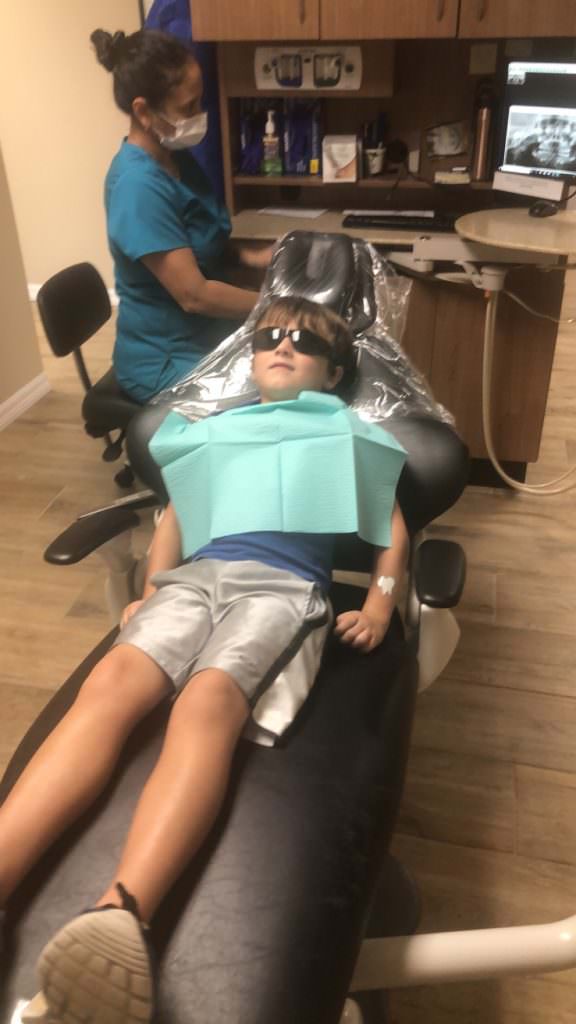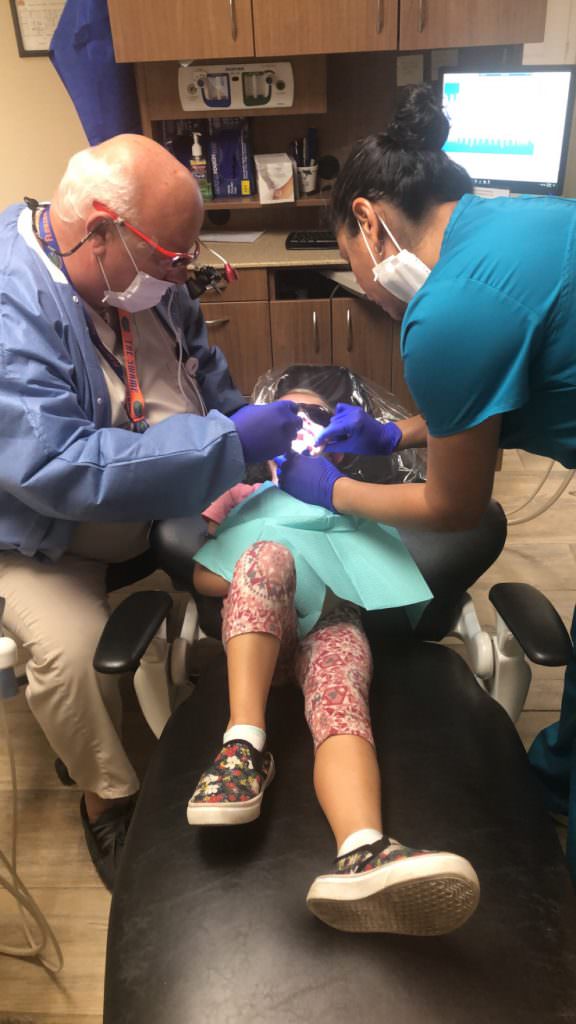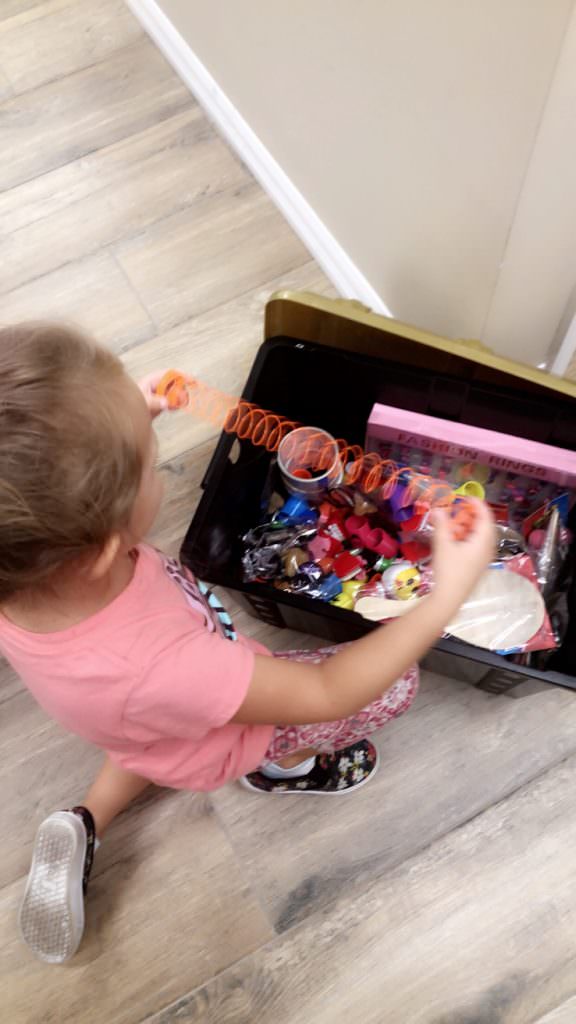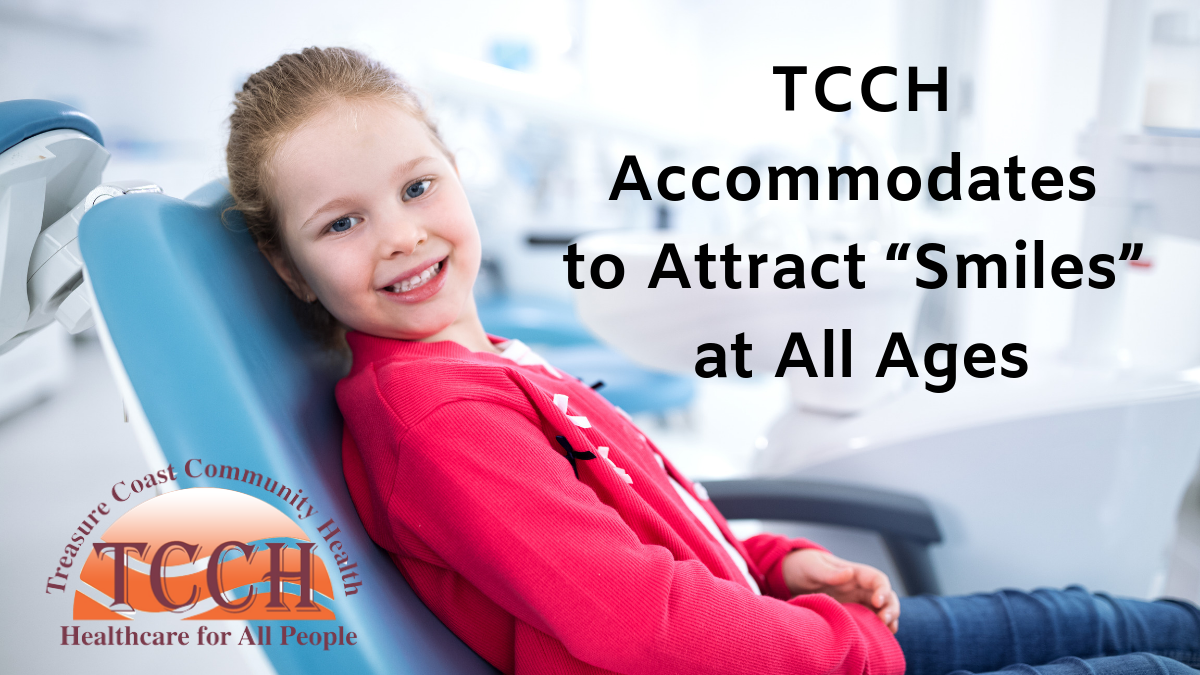
Children, by nature, tend to have a fear of “offices” that involve people in white coats, strange devices, access to needles, medicines, bizarre chairs, awkward tables, and random cotton balls and wooden sticks. This is likely attributed to trips to the doctor, to the health department, or random videos on YouTube of who-knows-what, usually in association with shots, with being sick, or sustaining some implausible and traumatic injury.

As with any business, customer service and a caring environment is the foundation of success, especially when it comes to health. A horrible office visit can remain a memory for a lifetime, no matter what age a person is. At Treasure Coast Community Health, practitioners and office personnel are focused on making each visit – especially for kiddos – one that goes smoothly, without too much crying involved, and as efficiently and thoroughly as possible.

A first-time dentist patient gets to choose from TCCH’s “Treasure Chest” for having no cavities and being a trooper during her office visit. Rewards help children overcome any fears that they may be experiencing going into the appointment.
For parents coming back into a brand-new school year, doctors’ appointments, dentist appointments, well-checks, shots, physicals, and sports physicals are in high demand. Kids who are enrolled in HeadStart programs are required to have a dentist evaluation in order to be an eligible student in their VPK program. As a general guideline, the American Academy of Pediatric Dentistry (AAPD) recommends that a child go to the dentist by age 1 or within six months after the first tooth erupts. Some parents abide by this. Others tend to wait.
At TCCH, kids are given almost a celebrity-like experience at the dentist. They’re each treated with sensitivity and an explanation of the things that are about to happen to them – while an office visit can be overwhelming, when handled the right way it can fly by before the kids even know what’s going on. And at the end, a trip to the treasure chest seals the deal of having a successful experience. Plus, getting to wear cool sunglasses while in the dentist’s chair is always a convenient distraction.
There are many qualified dentists and health clinics in the Vero Beach area – as with any medical procedure, there’s always specifications on insurance accepted, copays, and self-pay requirements. To find out if you qualify for services, it’s best to start with the insurance company you do have, if any, and go from there. If uninsured, call your office of choice and ask about what options you have for care. To find out about Medicaid qualifications, call Social Security’s toll-free number (800) 772-1213 or TTY (800) 325-0778, or visit www.ssa.gov. Families who only want to apply for Medicaid for their children may submit a Florida KidCare application. Call the toll-free number (888) 540-5437 or TTY (877) 316-8748 or visit www.floridakidcare.org.
Community Health Funding
TCCH is a Federally Qualified Health Center (FQHC), or more commonly known as a community health center. TCCH is a provider of primary care services in a center that is community-based and patient-directed. By mission and design, CHCs exist to serve those who have limited access to health care, although all are welcome. Unlike most private practices, CHCs welcome low-income individuals, the uninsured and underinsured, immigrants, migrant and seasonal farm workers, those who are homeless, and those who live in public housing. They are locally based, governed by a board of directors, and comprised of area volunteers. Payment is based on a patient’s ability to pay.
“Philanthropy plays a pretty big role in our ability to serve so many.”
– Dennis Bartholomew, TCCH Director of Business Development
TCCH receives some of its funding under Section 330 of the Public Health Service Act by the Health Resources and Services Administration (HRSA), a division of the United States Department of Health and Human Services (DHHS). Funding must be used for approved program purposes. According to Dennis Bartholomew, Director of Business Development at TCCH, federal grant funding represents only 18% of TCCH’s annual budget, yet the majority of patients who are seen have earnings of less than 100% of federal poverty guidelines and pay a reduced amount.
“Philanthropy plays a pretty big role in our ability to serve so many,” Bartholomew said.
Ways to Donate
Like so many services available in the Vero Beach community, TCCH is able to operate with the funding it receives as mentioned above, and through philanthropic mechanisms. If you would like to donate to TCCH, there are a few ways to do so. Paypal is an option, as well as a planned donation. For more information on how you can support this community-wide health service, visit https://www.tcchinc.org/about-us/foundation/ways-of-giving/.
There are a number of events coming up to support fundraising efforts for TCCH – the Anniversary Gold Classic in September, and the Great Duck Derby in October. This past weekend, a poker run was held to raise funds for services geared toward Veteran’s and First Responders suffering from post-traumatic stress disorder (PTSD). TCCH provides both counseling and medication for those patients, and the monies raised from that event go toward those services. Approximately 30-35 riders participated and made stops at the Navy Seal Museum and Harley Davidson along their run.
- ShrimpFest & Craft BrewHullabaloo Welcomes Antique Car Enthusiasts - February 26, 2020
- Jillian Jackson - February 17, 2020
- Dr. Chris Festa - February 17, 2020

